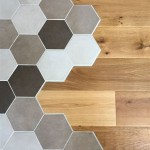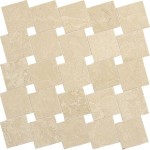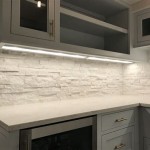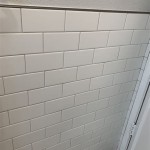Granite And Tile: Durable Flooring Solutions For Your Homes
Choosing the right flooring is a crucial decision for homeowners. It impacts not only the aesthetic appeal of a space but also its functionality, durability, and long-term maintenance. Granite and tile stand out as two exceptionally durable and versatile options, each offering unique benefits that cater to a wide range of design preferences and practical needs. Understanding the characteristics of granite and tile, their respective advantages, and appropriate applications will empower homeowners to make informed decisions that enhance the value and longevity of their homes.
Granite, an igneous rock formed from slow cooling magma beneath the Earth's surface, boasts inherent strength and resistance to wear. Its dense composition makes it impervious to scratches, stains, and heat, making it an ideal choice for high-traffic areas such as kitchens and hallways. Tile, encompassing a broad category of manufactured flooring materials, offers a vast array of styles, colors, and sizes. From ceramic and porcelain to natural stone variations, tile provides unparalleled design flexibility while maintaining a significant degree of durability. The choice between granite and tile hinges on specific project requirements, budget considerations, and desired aesthetic.
Durability and Longevity: Granite's Unmatched Resilience
Granite's reputation for durability is well-deserved. Its formation process contributes to its exceptional hardness and resistance to damage. Composed primarily of quartz, feldspar, and mica, granite possesses a tightly interlocked crystalline structure, granting it remarkable resilience against scratching, chipping, and cracking. This inherent strength makes granite an excellent choice for areas subjected to heavy foot traffic, such as entryways, living rooms, and commercial spaces. Furthermore, granite's resistance to staining is a significant advantage. When properly sealed, granite's porous surface becomes virtually impenetrable, preventing liquids and spills from seeping into the stone and causing permanent discoloration. This characteristic makes it particularly suitable for kitchens, where spills are common.
The longevity of granite flooring is another compelling advantage. With proper installation and maintenance, granite floors can last for decades, retaining their beauty and structural integrity. This long lifespan translates to a significant return on investment, as homeowners avoid the expense and inconvenience of frequent flooring replacements. Granite’s resistance to fading from UV exposure also ensures that its color remains vibrant over time, contributing to its lasting appeal. The combination of durability, stain resistance, and longevity makes granite a wise choice for homeowners seeking a flooring solution that will stand the test of time.
Maintenance of granite flooring is relatively simple. Regular sweeping or vacuuming is sufficient to remove loose dirt and debris. Periodic cleaning with a pH-neutral cleaner will help maintain the stone's luster and prevent the buildup of grime. Sealing the granite every few years is essential to preserve its stain resistance. This simple maintenance routine ensures that granite floors remain beautiful and functional for many years.
Tile's Versatility: A Spectrum of Design Possibilities
Tile offers an unmatched level of versatility in terms of design, color, and texture. Unlike granite, which is limited to naturally occurring variations, tile is a manufactured product that can be customized to suit virtually any aesthetic preference. Ceramic and porcelain tiles, two of the most common types, are available in a wide range of sizes, shapes, and finishes, allowing homeowners to create unique and personalized spaces. From classic subway tiles to intricate mosaic patterns, the design possibilities are virtually endless.
Beyond aesthetics, tile offers practical benefits that make it a popular flooring choice. Porcelain tile, in particular, is known for its exceptional durability and water resistance. This makes it an ideal choice for bathrooms, kitchens, and other areas prone to moisture. Porcelain tiles are also resistant to scratching and staining, making them easy to clean and maintain. Ceramic tile, while slightly less durable than porcelain, is still a robust flooring option that offers excellent value for money. It is suitable for a variety of applications, including walls, floors, and countertops.
The installation of tile flooring requires careful attention to detail. Proper subfloor preparation is essential to ensure a level and stable surface. The tiles must be laid with precise spacing and alignment, and the grout must be properly applied and sealed to prevent water damage. While DIY tile installation is possible, it is often best to hire a professional installer to ensure a flawless and long-lasting result. A skilled installer will have the knowledge and experience to handle any challenges that may arise during the installation process.
Maintenance of tile flooring is generally straightforward. Regular sweeping or vacuuming is sufficient to remove loose dirt and debris. Periodic cleaning with a mild detergent and water will help maintain the tile's luster and prevent the buildup of grime. Grout lines should be cleaned regularly to prevent staining and mildew growth. Sealing the grout is essential to protect it from water damage and staining. With proper care, tile floors can remain beautiful and functional for many years.
Granite vs. Tile: Making the Right Choice for Your Home
The decision between granite and tile hinges on a variety of factors, including budget, design preferences, and specific project requirements. Granite, while offering unmatched durability and a luxurious aesthetic, tends to be more expensive than tile. The cost of granite varies depending on the type, color, and thickness of the slab. Tile, on the other hand, is available in a wider range of price points, making it a more accessible option for budget-conscious homeowners.
Design preferences also play a significant role in the decision-making process. Granite offers a natural stone appearance with unique variations in color and pattern. This can add a touch of elegance and sophistication to any space. Tile, with its vast array of colors, textures, and patterns, offers greater design flexibility. Homeowners can choose from a seemingly endless selection of styles to create a truly personalized look. The choice between granite and tile ultimately depends on the homeowner's individual taste and the desired aesthetic for the space.
Specific project requirements should also be considered. For high-traffic areas that require exceptional durability, granite is often the preferred choice. Its resistance to scratching, staining, and heat makes it ideal for kitchens, entryways, and commercial spaces. For bathrooms and other areas prone to moisture, porcelain tile is an excellent option due to its water resistance and ease of maintenance. Considering the specific demands of each space will help homeowners make an informed decision that meets their needs and enhances their home's value.
Installation costs are another factor to consider. Granite installation typically requires specialized tools and expertise, which can add to the overall cost. Tile installation, while still requiring skill and precision, is generally less expensive than granite installation. Homeowners should obtain quotes from multiple contractors to compare pricing and ensure they are getting a fair price for the installation work. The overall cost of the project, including materials and installation, should be carefully evaluated before making a final decision.
In summary, both granite and tile offer exceptional durability and aesthetic appeal, making them excellent flooring choices for homeowners. Granite's unmatched resilience and natural beauty make it a premium option for high-traffic areas and those seeking a luxurious aesthetic. Tile's versatility, affordability, and water resistance make it a practical and stylish choice for a wide range of applications. By carefully considering budget, design preferences, and specific project requirements, homeowners can choose the flooring solution that best suits their needs and enhances the value and beauty of their homes.
Beyond the considerations already mentioned, the environmental impact of each material should also be taken into account. Granite, being a natural stone, requires extraction and processing, which can have environmental consequences. Sustainable sourcing practices and responsible quarrying can help mitigate these impacts. Tile, especially porcelain tile, can be manufactured using recycled materials, reducing its environmental footprint. Homeowners concerned about sustainability should research the sourcing and manufacturing practices of different granite and tile suppliers to make an environmentally conscious choice.
The long-term maintenance requirements of each flooring option should also be considered. While both granite and tile are relatively easy to maintain, they do require regular cleaning and occasional sealing. Granite, being a porous material, requires periodic sealing to prevent staining. Tile grout also requires regular cleaning and sealing to prevent water damage and mildew growth. Homeowners should factor in the time and effort required for maintenance when making their decision.
Finally, it is important to consult with a qualified flooring professional before making a final decision. A professional can assess the specific needs of the project, provide expert advice on material selection, and ensure proper installation. They can also help homeowners navigate the vast array of granite and tile options available and choose the best flooring solution for their homes. Investing in professional advice and installation can help homeowners avoid costly mistakes and ensure a long-lasting and beautiful flooring result.

Benefits Of Granite Flooring For Your Home Chandan Marbles

A Handy Guide To Granite Flooring Designs For Your Home

8 Most Durable Options For Flooring Lx Hausys

Vitrified Tiles Vs Granite Here Are Some Stunning Options To Choose From

Durable Granite Tile Flooring High Style That Turns Heads

Marble Vs Granite Tiles Choose The Best For Your Home Attila S

Best Flooring Guide 9 Types Of Floor Options For Your Home

Granite Flooring In Singapore Stunning Floor Tiles Ideas

Best Kitchen Flooring Options For You Forbes Home

Best Kitchen Flooring Floor Ideas For Your Home
Related Posts







